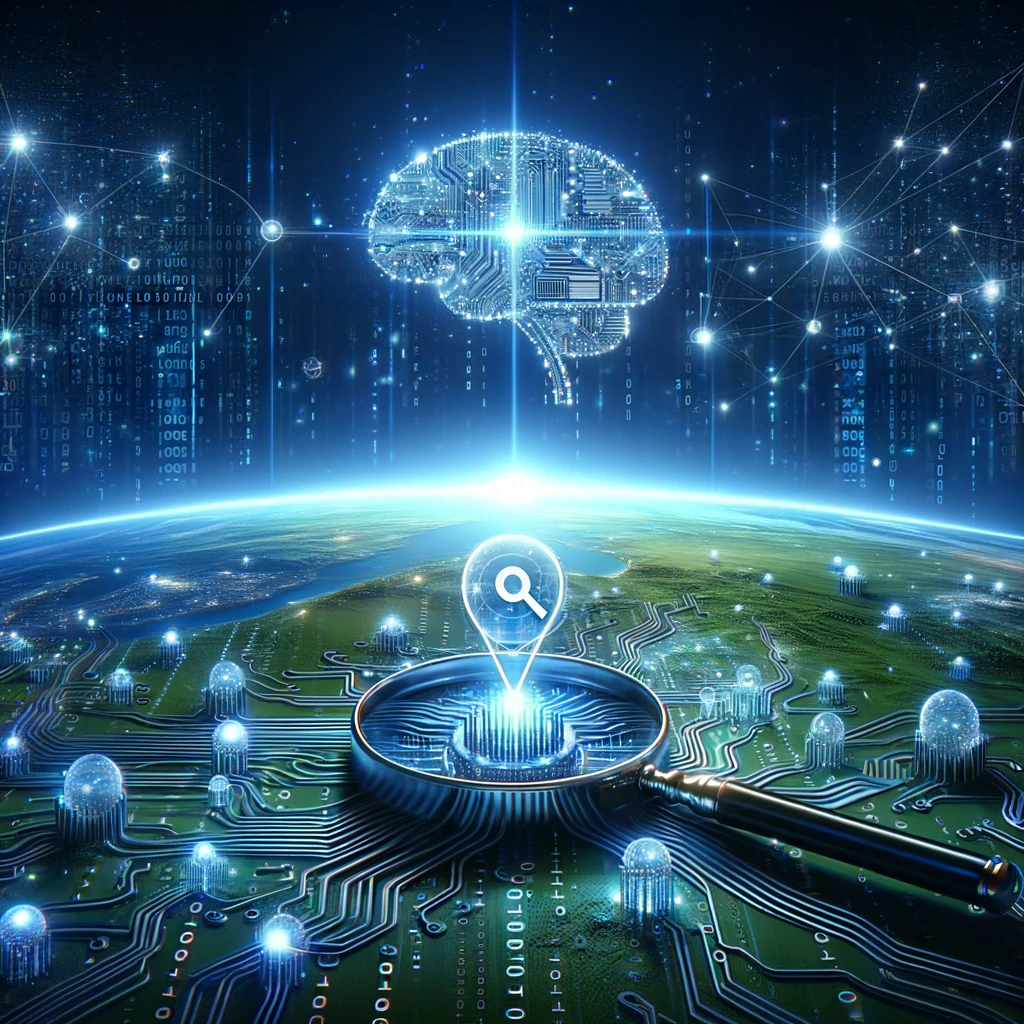Introduction
The Transformation of SEO in the Age of Artificial Intelligence
The constant evolution of the digital environment has been marked by innovations that, time after time, redefine the way we interact with the internet, forcing blogs and websites to use Futuristic SEO Strategies.
One of the areas most impacted by these changes is Search Engine Optimization (SEO).
We are currently on the brink of a new revolution: the rise of Artificial Intelligence (AI) and its potential to reshape, or even replace, traditional search engines.
From Keyword Search to Contextual Understanding
Historically, SEO has revolved around optimizing for keywords, link structures, and other elements that search engine algorithms consider important.
However, with the advancement of AI, especially in advanced natural language processing systems like ChatGPT, the dynamics of information seeking are changing.
AI is not limited to identifying keywords, but seeks to understand intentions and contexts, offering more accurate and personalized responses.
The Future of SEO: Adaptation and Innovation
This article will explore the implications of this emerging scenario for the future of SEO.
We'll discuss how content optimization strategies can evolve, how content creation and digital marketing will adapt, and what new skills and tools SEO professionals will need.
Additionally, we will address the ethical and privacy implications of the widespread adoption of AI in search.
In the next sections, we'll take a deep dive into these questions, unveiling the future of SEO in a world where Artificial Intelligence could come to dominate the way we search for and consume information online.
Index

The Emergence of AI in Search Queries
Redefining Information Search
With the rise of Artificial Intelligence, the traditional search process is being reimagined.
Models like ChatGPT represent a significant advance, providing a more intuitive and human interaction.
Instead of sifting through a list of links, users receive direct, contextualized answers. This not only improves the user experience, but also challenges the very notion of internet search.
Advantages and Challenges of AI in Search
The advantages of such a system are clear: efficiency, precision and a personalized experience.
However, there are significant challenges. The accuracy of AI depends on the quality of the data fed to it, and there is a risk of bias and misinformation.
Additionally, reliance on an AI model for search can centralize control of information, raising concerns about privacy and monopoly power.
Impact on User Behavior
This new search paradigm directly influences user behavior.
With quick, personalized responses, the patience to browse multiple sources decreases, and the expectation for more conversational, less keyword-based interactions increases.
This requires a significant adaptation in SEO strategies, which are traditionally based on optimizing for keywords and backlinks.
The Evolution of SEO Strategies
From Focusing on Keywords to Understanding Intent
The change brought about by AI requires SEO professionals to rethink their strategies.
The emphasis shifts from focusing on keywords to understanding user intent and context.
This means creating content that answers users' questions in a more natural and conversational way, rather than simply optimizing for certain keywords.
Contextual and AI-Based SEO
The era of AI in SEO will be marked by adaptation to user context and intent.
This will involve using AI tools to analyze search trends and user behavior, allowing SEO professionals to adjust their content in a more effective and personalized way.
Content should be more dynamic, continually adapting to changes in user preferences and behaviors.
The Importance of Quality Content
High-quality, well-researched content will become even more crucial.
AI can identify and prefer content that offers real value to users, with accurate, well-written and deeply informative information.
This places a renewed emphasis on creating original and valuable content, moving away from superficial keyword-based optimization.
Impact on Content Creation and Marketing
Adapting Content to Futuristic SEO Strategies
In the scenario where AI dominates searches, Futuristic SEO Strategies must evolve to meet a new type of content demand.
Content creation will no longer just be about search engine optimization, but also about satisfying the needs of sophisticated AI systems that seek to understand and respond to users’ intentions.
New Formats and Content Structures
With Futuristic SEO Strategies, we will see a change in content formats.
Long, detailed texts, interactive videos, and dynamic infographics will gain prominence as they offer a richer, more engaging experience.
The content structure must be designed to directly and efficiently respond to user queries, facilitating interpretation and presentation by AI.
Digital Marketing in an AI-Dominated Era
Futuristic SEO Strategies will also require a new approach in digital marketing.
Online advertising and engagement will need to be more personalized, leveraging the data and insights provided by AI to create more effective and targeted campaigns.
This implies greater integration between SEO, content marketing and data strategies.
The Role of Data Privacy and Ethics in AI-Driven SEO (400 words)
Ethical and Privacy Challenges
By adopting the IF THE Futurists, we cannot ignore the ethical and privacy implications.
AI has the potential to collect and analyze vast amounts of personal data, raising significant concerns about how this data is used and protected.
Regulations and Responsible Practices
As Futuristic SEO Strategies develop, it is crucial to establish regulations and practices that ensure users' privacy is protected.
This includes transparency in data collection and use, as well as implementing robust security measures to prevent data abuse and breaches.
The Responsibility of SEO Professionals
SEO professionals will need to be mindful of ethical and privacy issues when implementing “Futuristic SEO Strategies”.
This means adopting responsible practices, ensuring that the use of AI and data does not undermine users' privacy and trust.
Future Predictions and Trends (500 words)
Anticipating Changes in SEO
“Futuristic SEO Strategies” will be shaped by a number of emerging trends.
Advanced personalization, increased use of mobile devices, and voice search are some of the areas that will significantly influence the future of SEO.
Role of Continuous Learning and Adaptation
To stay relevant, SEO professionals will need to continually adapt, learning and trying new techniques.
“Futuristic SEO Strategies” will require an open mindset and a willingness to explore new technologies and approaches.
The Continuous Evolution of SEO
SEO is not static, and “Futuristic SEO Strategies” will be a testament to this constant evolution. As AI becomes more sophisticated, SEO will continue to adapt, ensuring professionals and businesses remain effective and competitive.
Conclusion
Summarizing the Future of SEO
This article explored how “Futuristic SEO Strategies” will adapt and evolve in a world where AI plays a dominant role in online search.
From the shift in keyword focus to understanding user intent to the growing importance of ethics and privacy, the future of SEO will be marked by significant adaptations.
Adapting to an AI-Dominated World
For SEO professionals, adapting to this new world means embracing change, investing in continuous learning and being prepared for new challenges.
“Futuristic SEO Strategies” are not just about search engine optimization, but about understanding and interacting with an increasingly intelligent and integrated search ecosystem.
Closing
“Futuristic SEO Strategies” represent an exciting new frontier for SEO professionals and digital marketers.
By embracing change and adapting to it, we can ensure we continue to effectively connect brands and content with users, in a world where online search and interaction are increasingly influenced by artificial intelligence.







